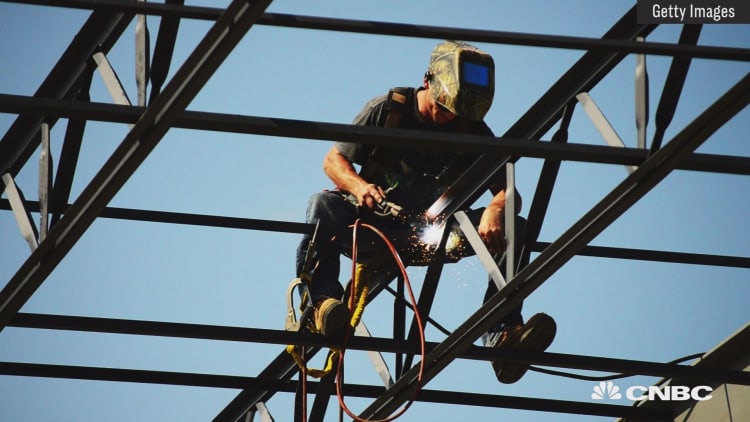
President Donald Trump would have been better served by targeted tariffs on steel and aluminum instead of the broad, "draconian" taxes he announced last week, Goldman Sachs said Tuesday.
Goldman's global head of commodities research explained that by failing to exempt certain trading allies, the U.S. has likely created a "two-tier" metal market.
"Not all metal is created equally," wrote Goldman's Jeffrey Currie. "U.S. allies produce many of the value-added steels that current U.S. capacity cannot fully replace without substantial increase in investment. … As a result, the U.S. will end up simply paying the tariffs on the higher quality imported metal from U.S. allies even if the amount was at or under the quota."

Currie added that, had the announced tariffs been aimed solely at non-U.S. allies that represent 47 percent of steel imports and 21 percent of aluminum imports, they would likely only increase U.S. metal prices a "modest" amount.
Trump's tariffs have drawn criticism from foreign and domestic leaders alike, including Republican House Speaker Paul Ryan, who on Monday said he is "extremely worried" about the plan to impose a 25 percent levy on steel imports and a 10 percent tariff on aluminum imports.
Meanwhile, European, Canadian and Chinese leaders have all promised to respond in kind, threatening to tax U.S. exports of Harley-Davidson motorcycles (home state of Paul Ryan), bourbon whiskey from Kentucky (home state of Senate Majority Leader McConnell) and Levi's jeans from California (House Minority Leader Nancy Pelosi's home state).
Goldman noted that China – seen as a principal target of Trump's protectionist policies – could easily slap tariffs on U.S. soybeans, which averaged half of all American agriculture exports to China over the last five years and for which the Asian nation is the largest export market.
"Although the administration has hinted at niche market exemptions, it has reiterated that no country will be exempt," Currie added. "This analysis points to three downstream industries as being potentially vulnerable: motor vehicle and trailer parts, can manufacturing, and to a lesser extent soft drink manufacturing."
To be sure, some on Wall Street remain optimistic the president's taxes will excuse key trading partners like Canada and Mexico despite the fact the administration has yet to produce a finalized, written proposal.
Trump's Commerce Department has cited Section 232 of the 1962 Trade Expansion Act in making its recommendation for tariffs. Department leaders contend that the dumping of cheap steel and aluminum from China and other countries puts U.S. competitors out of business, risking national security.
"This is the irony of Section 232," concluded Currie. "A tariff intended to support U.S. industry may end up boosting margins and investment for a small subset of producers while leaving the broader economy at a disadvantage via higher costs."
WATCH: Trump's tariffs could lead to unintended consequences



